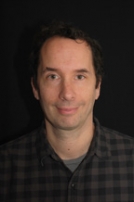Just about a year after Bristol-Myers Squibb ($BMY) and Allied Minds got together to create Allied-Bristol Life Sciences (ABLS) with plans to collaborate on new biotech spinoffs, the joint venture has inlicensed research from Harvard University that may eventually lead to new drugs for fibrotic and autoimmune diseases.
 |
| Harvard's Malcolm Whitman |
Their interest was snagged by research done at Professor Malcolm Whitman's lab at the Harvard School of Dental Medicine. Whitman and Tracy Keller identified the mechanism of action of halofuginone, a compound derived from the blue evergreen hydrangea, which has long been used in traditional Chinese remedies.
Building on earlier work, the pair determined that the drug inhibits Prolyl-tRNA synthetase, which in turn activates an amino acid restriction response pathway. They then developed lead molecules on the path to identifying the best candidate for clinical development.
"The work done by Whitman and Keller is a terrific example of a promising early-stage therapeutic application that has the potential to make a significant difference to patients," said Satish Jindal, the CEO of ABLS. "We are pleased to support this project through the next phase of drug discovery to identify a candidate for clinical development. This is a great example of the type of university research that ABLS looks for, where our expertise and experience can accelerate bringing new therapies to patients that need them."
This is one of the first licensing deals since ABLS was launched last August. Allied-Bristol Life Sciences is focused on matchmaking with academic researchers, opening up the innovative biotech's research facilities and providing some financial and management guidance to move new drug discoveries into preclinical studies. ABLS will then spin out new biotechs that Bristol-Myers will have an option to buy.
- here's the release